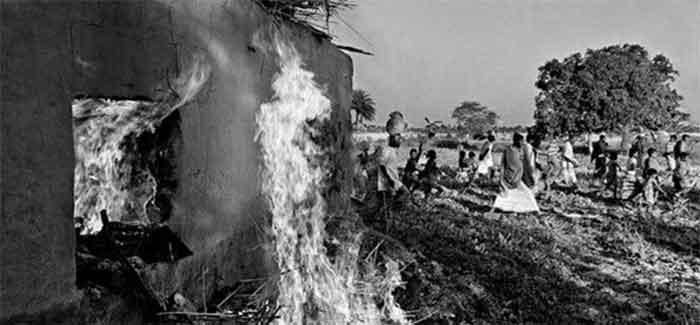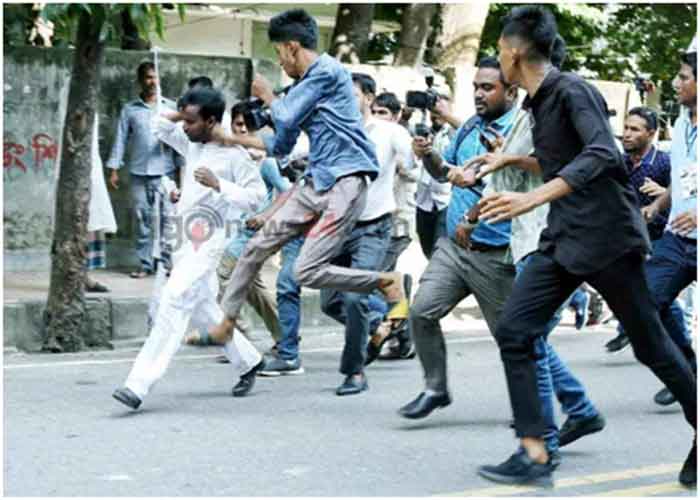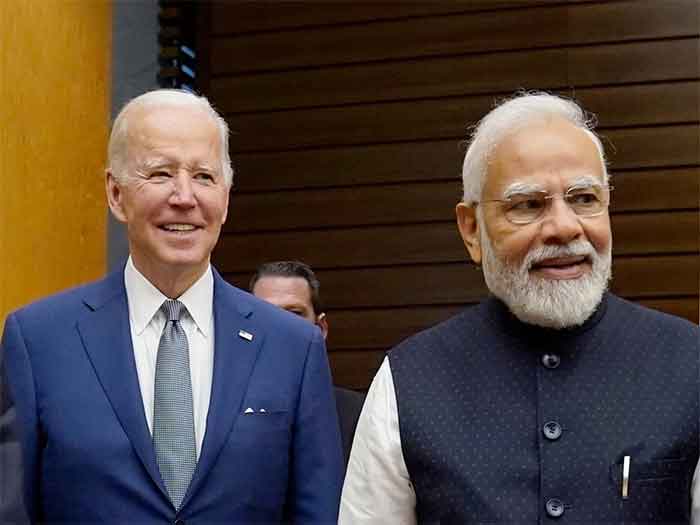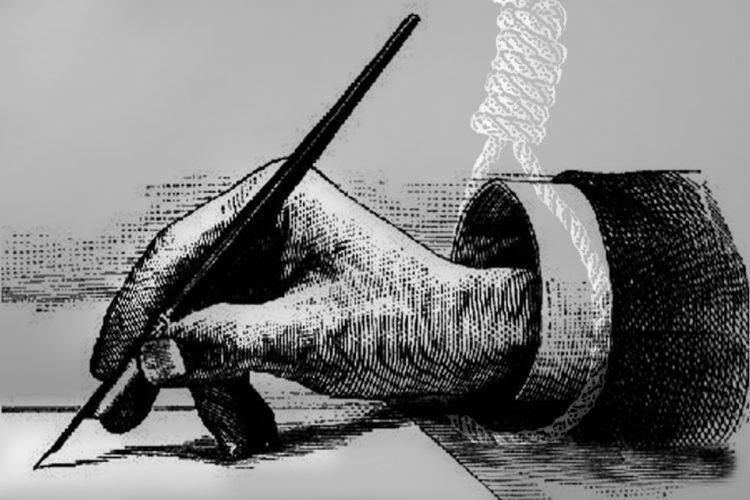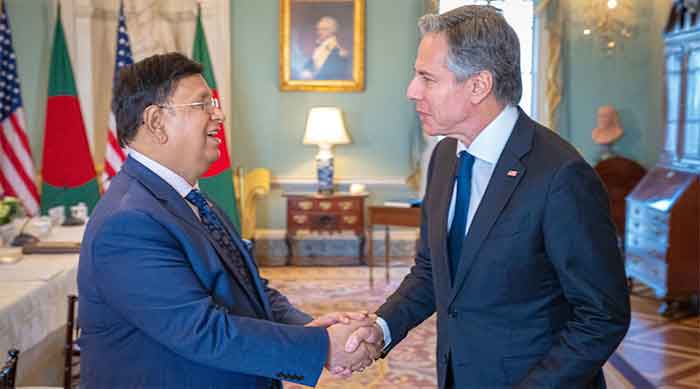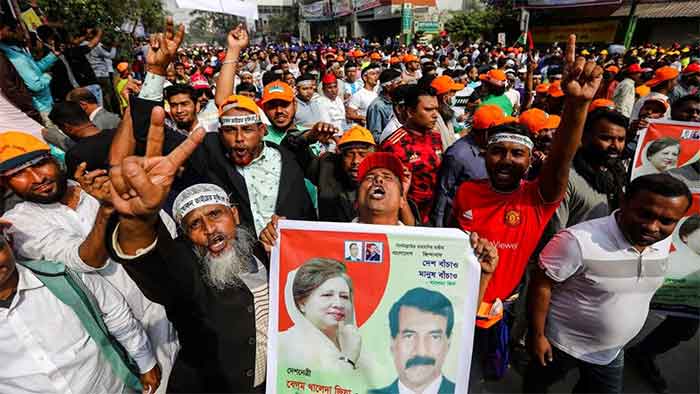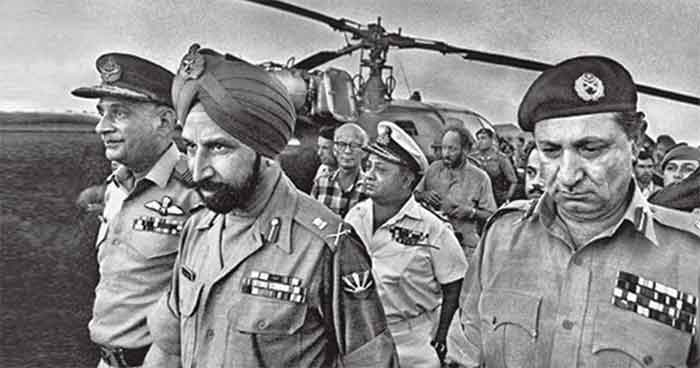
Most wars are not justified. However 50 years ago, as India prepared for war during the greater part of 1971, these preparations were well justified, and were in fact necessary to prevent a higher loss of human lives.
Pakistan under Yahya Khan had chosen to suppress the democratic aspiarations of the people of its eastern wing in a most cruel way by unleashing terror and killings. This ultimately claimed as many as 2 million lives. Nearly 200,000 girls and women were raped. Intellectuals including teachers and writers were specifically targeted. The brave people of Bangladesh were resisting this all the time, but given the much superior armed strength and weapons of the Pakistani army and their fanatic, sectarian local collaborators, such destruction could have continued for a long time. An intervention by India thus amounted to saving several hundred thousand lives that could possibly be lost if the crackdown continued.
Secondly, the crackdown had also resulted in nearly 10 million endangered people seeking refuge in India, a very large number being members of a badly threatened religious minority ( Hindus). India could not afford to meet the huge economic costs of taking care of so many refugees for an indefinite time, and safe conditions for their return home had to be created.
Thirdly, the US led western bloc was on the whole supportive of Pakistan and the US in particular was exceptionally firm in this support for Pakistan. Hence pressures to prevent the genocide and to reach a justice based resolution of crisis were least likely to emerge from there, nor was any significant help for refugees assured from there. If anything, Nixon was thinking of cutting down aid to India. Hence India had to bear the main burden of defending its interests as well as protecting the badly threateneds people of Bangladesh, to act in accordance with this understanding, and to prepare well for meeting this huge and difficult challenge. Any failure to have such a clear understanding and to make preparations in keeping with the enormity of the challenge would have been disastrous for India and for the valiant struggle of the people of Bangladesh.
In the extremely difficult circumstances, India responded to the challenge with a combination of great courage and wisdom. As a result, a great victory was achieved in two weeks time, a remarkably short time for such an immense military campaign over two wide areas, far removed from each other on eastern and western sides of India, involving navy, army and air force. However, despite the short time it took to register a complete victory by India, the great difficulties and challenges which confronted India at this critical juncture should never be under-estimated.
The victory was achieved in the face of the most difficult international situation. Two super powers USA and China were completely supporting Pakistan all through the genocide. Till just a few years back, in the times of President Kennedy in particular but continuing more or less under his immediate successor Johnson, India and the USA had fairly good relations. However as release of unclassified documents since then has shown more clearly, the all powerful duo of Nixon and Kissinger had a vicious dislike for India which went much beyond their perceived national and strategic interests. In fact they allowed their completely non-rational dislike for India and Indian leaders to completely overpower rational thinking regarding US interests and acted in ways completely hostile to India. This becomes obvious also from some of the unprintable language used by them regarding Indian people and leaders.
To this irrational dislike of India was added a special bonding towards Yahya Khan, who now even in Pakistan is seen widely as one of the country’s worst rulers ever. This bonding was strengthened by the role played by Yahya and his intelligence agencies in establishing linkages between Chinese and US leaders. Hence China, generally friendly to Pakistan and hostile to India (having already fought a war with India ) had come even closer to Pakistan in Yahya years and even if we do not say that it was complicit in the genocide taking place in East Pakistan in 1971, we can safely say that it did not do what it could have done to stop this. In fact the support of both the USA and China for Yahya added much to his ability to continue the genocide over several months.
Hence whatever India did in 1971 to help in the liberation of Bangladesh had to be done in the face of the determined opposition of two very big military powers namely the USA and China. If China had attacked or even created some trouble along its long borders with India that would have meant opening a third front for India and making all the additional preparations needed for confronting a much more powerful army than that of Pakistan. It is well known by now that Kissinger had actually tried to lure his new Chinese friends towards playing such a role. If the USA fleet entering the Bay of Bengal had become more aggressive beyond its symbolic threatening presence, then again India as well as the liberation fighters of Bangladesh would have faced a very difficult situation.
Let us also not forget that once the war started and India progressed well, the US moved three Security Council resolutions for ceasefire which would have resulted in stalemate and left unfinished the task of Bangladesh liberation, while Pakistan would have got time and chance to move more forces to the East, continuing repression as an internal matter of Pakistan beyond the scope of ceasefire. It was the veto of the Soviet Union to these resolutions which enabled the task of the liberation to be completed within two weeks, resulting in celebrations in the newly born nation of Bangladesh. Hence the debt to the Soviet Union at this critical juncture cannot be forgotten, as also the wisdom of India’s leadership in first signing a friendship treaty with the Soviet Union in August 1971.
It was the good fortune of India that Mrs. Indira Gandhi as Prime Minister could rise to the great heights she did in 1971, that she had advisors of such high calibre like P.N.Haksar and the Indian Army had such a great general as Sam Manekshaw in these very critical and difficult times. Of course the victory was the result of the courage and wisdom of many great contributors, but the great role of these three leaders needs a special mention.
India should remember 1971 for its courage and daring in support of a just and noble cause, its national unity and firm resolve in the face of very difficult challenges, its abiliy to combine courage and caution, as evident in the careful, well-planned preparations over several months.
Bharat Dogra is a journalist and author. His recent books include Protecting Earth for Children and Planet in Peril.

